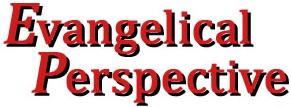The suggestion has been made that nobody thinks original thoughts. Feyerabend identified the whole of history and culture in which one lives as the source for thought. At the same time VanTil was pursuing the idea that our fallen nature prohibited us from having a full moral capacity which might prove redemptive. These two were writing against the supposed certainty of the logical empiricist/positivist of the day.
In their era the scientist was certain that truth, whatever that may be, was only to be found in what might be measured. That certainty was only logical and all else defied logic and was to be rejected. But Feyerabend and VanTil questioned such certainty, though each from a differing vantage point.
Jacques Barzun (Darwin, Marx, Wagner, Critique of a Heritage) questioned the specific theory structures, specifically Darwin’s mechanism and materialism. These two principles are foundational to Darwin’s system as they comprise his foundation for rejecting theism.
It is true that we are not bound to guide our daily life by the rules or assumptions that work in the laboratory, but the historical fact is that this is what Western man since the late nineteenth century has tried to do. Mechanism and materialism worked so beautifully — for a time — that even now we can sympathize with the enthusiasm of those who by its aid bequeathed to us the industrial world we live in. The misfortune was that when mechanism began to be questioned, for scientific reasons, the general public had become persuaded of its absolute truth; it could think in no other terms and it felt that all other views were simply “prescientific.”[i]
These are the same questions raised by Fodor (What Darwin Got Wrong) and Nagel (Mind and Cosmos). But it was not new to these two in the previous decade. Michael Polayi (Personal Knowledge) raised it in the 1950s, just as Barzun did in the 1940s.
There is a fundamental vagueness in this theory which tends to conceal its inadequacy. It consists in the fact that we lack any acceptable conception in which the way genetic changes modify ontogenesis – a deficiency which is due in its turn to the fact that we can have no clear conception of living beings, as long as we insist on defining life in terms of physics and chemistry. [ii]
Such criticism of Darwinism is nothing new though it seems so as Darwinists seem to not enjoy discussing the issue.
If Darwin’s materialism and mechanical view of life was merely an historical adaptation then what makes the theory valid as “science?” Can we call it “science” if it is limited in its scope because of the events of the day?
I’m not so pessimistic, at least not completely. To be fair we would be forced to treat our theology and criticisms with equal scrutiny as we would Darwin’s theories and criticisms. Yet the elephant remains – Darwinism is no more. Evolutionary theory is today proceeding through the same channels as is the rest of society. Darwin moved from empirical observation to abstract theory. Neo-Darwinists took his adaptation abstraction with its unguided character and turned it into a genetically guided system. Today’s mathematics oriented theorists (eg Wolfram and Shapiro) are going further and creating a genetically driven solution. It seems to have become impossible to separate theory from cultural trend.
It remains for the Darwinist to maintain a consistent theory that has the capacity to systematize the breadth of the natural world. Christian theology accomplished this centuries ago. Given the current state of Darwin and His Children I have my doubts about their capacities.
